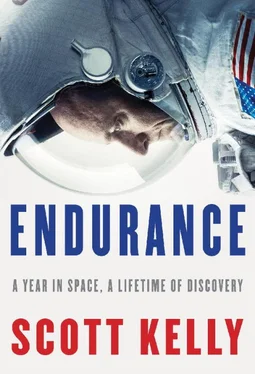Some people washed out even before they got the chance to fly solo: they couldn’t pass the swim requirements, couldn’t pass the survival training, or failed their safe-for-solo check flight. The program wasn’t meant to weed people out—the Navy had already invested a lot in each of us, and they wanted us to succeed—at the same time, they needed to be sure we wouldn’t endanger ourselves or others. Only a small percentage of those who start flight school wind up being assigned to a jet squadron, and I had done everything I could to establish a place among them.
—
WE KNEW THAT our next assignments would be announced on an upcoming Friday. That day, we waited in the hallway to learn our fate. I didn’t feel as nervous as some of my classmates seemed to be. I knew I had made every effort and held nothing back, working as hard as I could at the things I could control and ignoring what I couldn’t. I was ready for whatever was to come.
Finally a secretary tacked a simple sheet of paper to the bulletin board. We all crowded around. It had ten names on it in alphabetical order, and next to each one an assignment. Next to KELLY, SCOTT I found the words BEEVILLE NAVAL AIR STATION. I had done it. I was one of two guys in my group to make it to jets. I felt for my friends who didn’t, but I was elated knowing that my dream was still alive.
7

April 25, 2015
Dreamed I was on Earth. I was floating a few feet above the ground, to be exact, flying around New York City. I flew over the George Washington Bridge, down Fifth Avenue, through the Holland Tunnel, over to New Jersey, and around Giants Stadium. No one seemed to notice me. I was doing something important as I was floating around, maybe some kind of antiterrorism reconnaissance.
TODAY IS SATURDAY, almost two months into my mission, and Terry is euthanizing a mouse. Last night we got a call from the ground telling us that one of the mice was “in distress” and would need to be put down today. When we look into the cage first thing in the morning, we find the distressed mouse in a terrible state—missing a limb, apparently chewed off by the other mice or by herself. We work quickly to give her an injection. We are upset to know the mouse was suffering all night while we were sleeping. We tell mission control that in the future we want to know about a situation like this right away. They were trying to protect our time, but we would have liked to make that choice for ourselves. They seem surprised by how strongly we feel about it. I haven’t made the mistake of getting too attached to the mice, knowing what their fate will be. But it’s been hard not to take an interest in them, as their bodies go through the same changes ours have. They started off looking sick and disoriented, moving awkwardly, but as the days go on they look healthier and get better at negotiating the subtleties of moving around in zero g, just as we do.
When we got the call about the mouse last night, we were just finishing up with movie night— Gravity. We’d set up the big screen in Node 1 facing the lab and gathered to watch it—all of us but Samantha, who was finishing her workout. I’ve noticed a strange phenomenon when people watch movies in space: we instinctually move to a position that looks like lying down with relation to the screen. In weightlessness our positions make no difference in the way we feel physically, but the association between lying down and relaxing is so strong that I actually feel more relaxed when I get into this position. The film was great—we were impressed by how real the ISS looked, and the five of us were an unusually tough audience in that regard. It was a bit like watching a film of your own house burning while you’re inside it. When Sandra Bullock got out of her space suit and floated in her underwear, Samantha happened to come floating by the screen in her workout clothes—later I regretted failing to get a picture of them together.
After we finish up with the mouse and communicate with the ground about it, I have my first videoconference with Charlotte. Unlike phone calls, these conferences have to be planned in advance. I’m ready with my laptop and my headset on at the appointed time, and when Charlotte’s round face pops up on my screen she breaks out in a huge smile. The interface is similar to Skype or FaceTime—I can see Charlotte’s face and the room behind her in a large window on the right of my laptop screen, while on the left is a smaller window that shows me floating in my CQ. I haven’t seen her since Baikonur, a month ago. She is eleven and looks different every time I see her—she seems to have aged a year.
Charlotte is a quiet and thoughtful person by nature, and self-reliant for her age. We connect well in person, but it can be hard to have a phone conversation. During the time I’ve been here, I’ve struggled to connect with her. When I ask her, “How was school today?” I get “Fine.” When I ask her, “How’s your mom?” I get “Good.” “How’s the weather?” “Okay.” She also hasn’t been great about answering emails, even though she is a good writer. It’s disconcerting to reach out to her and never hear back. If she was hurt or unwell or depressed, would she or someone else tell me? In our videoconference she is much more responsive and engaging, true to form. I’ve never been to the apartment she shares with her mother in Virginia Beach, so this is my first glance inside. I can see a small living room, a sofa, a bookshelf. In the background, Leslie walks back and forth with a laundry basket.
I spend an hour showing Charlotte around the station. She saw it in videoconferences when I was here before, but she was just seven then. I float around with my laptop, pointing its camera around inside the modules where I’ve been working and living, introduce her to my crewmates as they happen to float by, and give her an overview of what I’ve been working on (leaving out the rodent we euthanized). She seems genuinely interested, leaning forward and smiling and asking questions. It’s great to see her animated and engaged. The Cupola is the last stop on our tour, and I time our arrival there to coincide with the station flying over the Bahamas. Charlotte is impressed. While we are talking I snap a few pictures with the camera to email her later. I know she’s seen many pictures of the Earth taken from space, but I hope she’ll enjoy receiving one taken especially for her.
After saying good-bye to Charlotte, I start getting ready for a birthday dinner for Samantha Cristoforetti. Birthdays are important in Russian culture too, and we make a point of celebrating them up here. This one is especially significant because soon Samantha, Terry, and Anton will be leaving us. As much as I will miss them all, I’m looking forward to breathing some good air (with half as many people exhaling, CO 2levels will come down). I know the dropping CO 2will likely cause the ground to act as though the problem has resolved itself, and I will be upset if that happens.
When I was packing the few personal belongings I could bring for this year, I included some wrapping paper because I knew I would be giving crewmates gifts on special days. Today I have some chocolate wrapped up nicely for Samantha’s thirty-eighth. As we often do at these dinners, we get to talking about language, specifically the nuances between curse words in English and Russian. Tonight we reach a point of confusion about the multiple ways of using the Russian word for “whore” and decide to call one of our Russian language instructors in Houston. Waslaw tries to explain to us in a combination of Russian and English the difference between blyad and blya. (He and I became friends on a St. Patrick’s Day years ago when a Moldovan drunk started a bar fight with the NASA folks in Star City, Russia.) Then he catches us up with what’s happening in Houston, and we fill him in on what life is like up here. By then it’s pretty late. For a little while, it almost felt like an earthbound Saturday night. It was nice to forget for a while that I will continue to be at work up here for weeks and months and seasons.
Читать дальше













